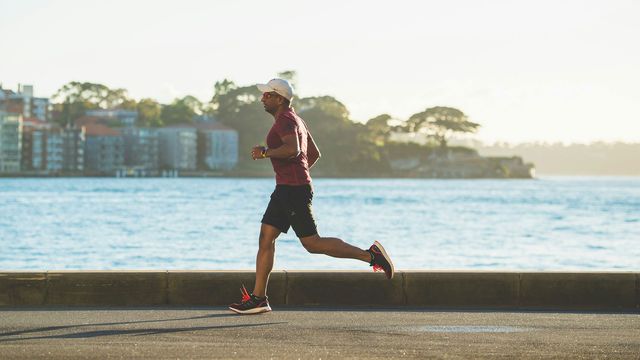Being physically active can sometimes reduce the risk of colon cancer
Thank you. Listen to this article using the player above. ✖
Want to listen to this article for FREE?
Fill out the form below to unlock access to ALL audio scripts.
A new study funded by the World Cancer Research Fund found that activity throughout the day, with peaks in the morning and afternoon, was associated with an 11% reduced risk of colon cancer (also known as as a bowel), compared to other forms of exercise. learned.
The study used accelerometer data (which measures movement) to analyze daily activity. It used a statistical method that analyzes all the data and finds common patterns, and how those patterns may be related to the risk of colon cancer.
Researchers at Regensburg University used data from the UK Biobank, which contacted 86,252 randomly selected people (56% of whom were women), asking them to wear accelerometers to measure the movement of see them within one week and follow them for 5 years to assess colorectal development. cancer. While studying the data, the researchers identified a 2-point pattern of daily exercise associated with a reduced risk of colorectal cancer.
Researchers found 4 different patterns of physical activity throughout the day:
- Continuous operation throughout the day
- Operation later in the day
- Pre- and post-processing
- Day and night action
A third pattern, where people were active in the early and late parts of the day, was associated with an 11% lower risk of colon cancer, compared to 6% for the activity of all day and there is no change between day and night. Data from later in the day activities were unclear. These findings held true even when factors such as smoking, shift work and other factors that could affect a person’s cancer risk were taken into account.
Impact on residential lifestyles
In addition, researchers found that daily activity reduces the risk of colorectal cancer among sedentary people. This may be due to the fact that the effect of physical activity is more pronounced compared to the previous lifestyle that was inactive, which means that those who are fit and healthy are now at a reduced level of risk of cancer. These studies show how good exercise can be, especially for sedentary people.
Looking for new content?
Subscribe to Technology Networks‘ daily newspaper, bringing science news straight to your inbox every day.
Register for FREE
Dr Helen Croker, Deputy Director of Research and Policy at Global Cancer Research, said:
“Exercise is one of the most common cancer prevention tips, and we know that it reduces the risk of cancer. These exciting new findings provide an opportunity to develop specific recommendations, including methods and exercise time, to reduce cancer risk. This shows the importance of the World Cancer Research Fund continuing to support research that advances our knowledge of cancer prevention.”
Professor Michael Leitzmann, Chair of the Department of Epidemiology and Preventive Medicine at the University of Regensburg, Germany, who was the principal investigator in this study, said:
“Our study highlights that physical activity is not only important in reducing the risk of colorectal cancer, but the time of day of high activity may play an important role. By identifying specific times – in the morning and evening – when physical exercise is very beneficial, our findings open up new avenues for targeted prevention strategies. If confirmed by future research, this could provide a simple but which affects individuals to reduce the risk of cancer during their exercise.”
Reference: Stein MJ, Baurecht H, Bohmann P, et al. Daily physical activity and risk of colorectal cancer UK Biobank. BMC Med. 2024;22(1):399. doi: 10.1186/s12916-024-03632-4
This article has been reprinted from the following sources. Note: Information may be edited for length and content. For more information, please contact the source mentioned. Our disclosure policy is accessible Here.
#physically #active #reduce #risk #colon #cancer
